- Home
- Jennifer Ashley
Murder in the East End Page 4
Murder in the East End Read online
Page 4
Nurse Betts sounded a nice, comfortable person, unlikely to snatch a few innocent children and take them away with her. Besides, she’d been the one who’d brought the missing children to Mr. Fielding’s attention.
There were any number of reasons a nurse at a children’s home would vanish, I had to admit. Some of those reasons were unfortunately troubling.
“Is there anyone at the Foundling Hospital, if I were to go there myself, you suggest I speak to?” I asked. “The vicar wishes me to be discreet—to not upset the matrons or other children. Who could I talk to who would keep a confidence?”
Elsie thought. “There’s a cook, Mrs. Compton. She’s the best of the lot—maybe she’d speak to you. Maids would know more, but the one on Mabel’s ward is sour as can be. Old Miss Nick, we called her, though her name’s Bessie.”
“Mrs. Compton then.” I committed the names she’d given me to memory. “Now to think of a reason to enter the kitchens of the Foundling Hospital,” I murmured, half to myself.
“Her ladyship could do it.” Elsie’s eyes sparkled. “She could pretend to be a charity lady and you could visit with her. Or she could go on a Sunday afternoon to watch Sunday dinner.”
I pulled myself out of my ponderings to gaze at her in surprise. “Watch Sunday dinner? How does one watch a dinner?”
“It’s a fine thing for ladies and gentlemen, innit? To pay a shilling or tuppence, or whatever it is, to view the foundling boys and girls eating their charity food. All in a row we’d sit, all in our same frocks, happy to have our grub. They’d file in and watch us like we were animals in a menagerie, they would. Talking all about us as they did.”
I’d heard of such things—a person could pay to stare at madmen in Bedlam, or at the convicts in Millbank. The directors of the places used the fees they collected to keep said place in funds. Wretched humanity on display. I would have hoped children would be spared.
“I am sorry,” I said, a bit awkwardly. “It is a pity you had to endure such things.”
Elsie shrugged, but I saw her stiffness. “Was better than starving in the streets, wann’t it? The matron could be hard, but we was fed and warm. And now I’m here.” She gave the copper pots and her sink full of dishes an almost fond look. “Could do worse, couldn’t I?”
I patted her shoulder. “You’re a diligent worker and a good girl, Elsie. I can ask Mrs. Bywater to consider making you a downstairs maid, so your hands won’t be in dishwater all the livelong day.”
Elsie looked alarmed, not grateful. “I like the kitchen, Mrs. Holloway. None bother me here, and you don’t mind my singing.”
I wondered if she’d learned to sing over her task from kind Nurse Betts. “Truth to tell, I like you down here with me,” I said. “But there is no need for you to be a scullery maid forever. You might even become a housekeeper one day. Mrs. Redfern was a tweeny as a girl.”
“Was she?” Elsie looked doubtful. Tweenies were maids who looked after upper servants, such as the housekeeper and lady’s maid. “Bit haughty now, ain’t she?”
Elsie darted a fearful look behind me after the words slipped out, as though Mrs. Redfern might pop up from the slates and overhear, but the kitchen was empty of all but Tess.
“She remembers her origins,” I said. “That is why she is fair-minded.”
Elsie looked chagrined. “Sorry, Mrs. H.”
“Never you mind. We’ll keep our opinions between ourselves. Thank you, Elsie.”
Elsie gave me an answering curtsy. “Can I get back to my dishes now, ma’am?”
“Of course.” I sent her a smile and left her, not wanting to unnerve her any longer. Elsie was a sweet girl, but she could break crockery when agitated.
She’d given me much to think on, I reflected as I returned to my vegetables. Much indeed.
* * *
* * *
Miss Townsend came down with Lady Cynthia later that afternoon. As the evening before, Miss Townsend dressed modestly, in a trim dress buttoned to her throat, her hair in a simple knot, and wore no jewelry, not even a ring or brooch.
Cynthia introduced her to me and an avid Tess, who scanned Miss Townsend as though hoping she’d do something scandalous on the spot. Miss Townsend gave Tess a little smile, the amusement in her eyes telling me she knew full well how others viewed lady artists.
I led Miss Townsend to the corner, from which I’d moved the empty crates. “I’ve put a chair for you here, miss,” I said, giving it a dust off with my hand. “Not very comfortable, I am afraid.”
“Never mind.” Miss Townsend turned the smile to me and sat down regally, as though I’d offered her the best chair in a luxurious hotel. “This will do nicely. Thank you, Mrs. Holloway.”
She’d brought a satchel, which she set on the floor next to her after withdrawing a rather small sketchbook. I’d seen people of leisure sitting in parks with such books, sketching away at the scenery.
As she flipped to a clean page, I saw that part of the book had already been filled. Faces jumped out at me, one of them Cynthia’s, but the pages moved too fast for me to study the pictures. I saw large flowers skim past and ordinary things like chairs and windows, all very lifelike.
“Quite beautiful,” I said. “If you don’t mind my saying, miss. Very skilled.”
Miss Townsend acknowledged this with a small nod. “You are kind. Thank you.”
“And she is modest,” Cynthia broke in. “Overly so, I’d say. Monsieur Degas praised her work, and he is notoriously hard to please. And has little use for the female sex.”
I agreed with this difficult-to-please man that Miss Townsend’s work—what I could glimpse of it—was indeed worth praise.
“I’ll leave you to it,” Cynthia said. “Mrs. Holloway’s a good sort, so if you have any need, simply ask her. She can provide you with food and drink that tastes of heaven.”
“Hardly heaven,” I said in mild rebuke.
“Now you are the modest one.” Cynthia laughed at me and strode off, calling a greeting to Mr. Davis as she went.
That man entered the kitchen, radiating disapproval. He took in Miss Townsend, who settled herself and quietly took out a pencil, but pinched his lips together and said not a word. He and Mrs. Redfern had been told to expect Miss Townsend’s presence, and both had expressed disapprobation.
However, Mr. Davis would never air his grievances in front of a guest. He only gave me a look and glided out again.
Miss Townsend had been sharpening her pencil with a knife, but I saw her flash of eyes that told me she’d taken in Mr. Davis’s admonition.
“What do ye want us to do?” Tess asked Miss Townsend in eagerness.
“Nothing at all,” Miss Townsend replied. “Go about your business. I will keep out of your way.”
Tess looked a bit disappointed, but she returned to her task of rolling out dough for this evening’s tarts. She couldn’t cease glancing every few seconds at Miss Townsend, especially when that lady’s pencil began to whisper across the page.
Miss Townsend proved so unobtrusive, however, that after a time, even Tess forgot she was there. I sautéed pears for the tart, adding in the last of the dried berries in the larder. Soon spring would arrive, and with it, delicate vegetables tasting of sunshine and rain, a promise that winter’s hold had loosened.
Not long later, Mrs. Redfern, who’d come into the kitchen to fetch a pot of tea for Mrs. Bywater, glanced out of the high windows.
“It’s that Mr. McAdam,” she said stiffly. “With a delivery, it seems.”
I wished I hadn’t raised my head so quickly at the mention of his name. Mrs. Redfern gave me a frown, as though to remind me of her scolding the night before.
“He can’t help making deliveries,” I said, wiping flour from my hands. “It is his job. I do need the things he brings.”
“You do indeed.” Mrs. Redfern fixed me w
ith a gaze. “But he should not linger.”
“Never mind, Mrs. Redfern. As I told you, I am not rushing to elope with him, or even walk out with him. We are friends.”
“Be ever so fine if you did elope,” Tess put in, not helping matters. “He’s sweet on you, Mrs. H.”
“Hush,” I said sternly. “Don’t talk nonsense.”
“Afternoon, Elsie, Tess, Mrs. Redfern.” Daniel entered on the heels of this comment, moving with his usual briskness through the scullery, a sack across his shoulders. He lowered the sack to the kitchen floor, making a show of rubbing his back. “Good day, Mrs. Holloway. A bit wet out, and your order of potatoes has nearly done me in. Can I beg a bit of coffee from you before I must face the elements once more?”
His face was damp, his cap dripping water on to my clean floor. Mrs. Redfern humphed and marched out with a teapot and cup on a tray. Daniel grinned after her then turned to me.
“Save any scraps for me, Kat? I mean, Mrs. Holloway.”
His dark blue eyes glinted, his smile as charming as ever. He dragged his cap from his head and wrung it out with exaggerated care, making Tess laugh and Elsie giggle.
He cast his gaze about the room as he always did when he entered one, no matter which persona he wore. He spied Miss Townsend in the corner, who had looked up to take us in.
Miss Townsend’s eyes widened the smallest bit, and her lips parted. Daniel’s eyes likewise widened, but so subtly, one had to know him well to discern it. I also saw his very slight shake of head. Miss Townsend subsided, closing her mouth.
Miss Townsend had recognized Daniel, and he her, I could see clear as day. And neither had expected to find the other on this afternoon, in my kitchen.
4
I alone noticed the silent exchange between Daniel and Miss Townsend. Elsie had returned to her sink, and Tess carried on chopping herbs while she burbled at Daniel.
“Mrs. Holloway made us a lovely meat pie for luncheon. There must be some left. I saw her setting back a slice.”
“Yes, indeed.” I finished crimping the tart shell for the pears and wiped my hands on the towel again. “It is in the larder. Would you care to step through with me, Mr. McAdam?”
Daniel clapped his cap to his head. “Come to think of it, I must get on. Many more deliveries to make.”
“It won’t take a moment.” I gave him a hard stare. “And you need to warm yourself.”
I saw Daniel realize refusing me would be a mistake. He gave me his devil-may-care smile and followed me into the corridor to the next room.
“Leave the door open,” Tess called after us. “Or Mrs. Redfern might think you up to something.” Her cackle of laughter drifted off.
I marched into the larder and to the shelf where I’d left the slice of meat pie on a plate covered with a bowl. When I turned around, I found Daniel immediately behind me.
“I was teasing you,” he said in a low voice. “I never expect you to feed me.”
I lifted off the bowl and shoved the pie at him. I’d already laid a fork on the plate in preparation. “You know Miss Townsend,” I declared.
Daniel took the plate and lifted the fork. “Yes.”
I was surprised. Daniel usually answered my direct questions with evasions, rarely the stark truth.
“In Paris?” I guessed, remembering Cynthia saying Miss Townsend had studied with a French lady artist there.
“Yes.”
Again, a straight answer. I waited while Daniel shoved a chunk of pie into his mouth and chewed.
“Were you courting her?”
Daniel gulped down pie, coughing in amazement. “No.”
“An important question, you will agree. I will ask another—was it to do with your police business?”
Daniel broke off a second hunk of pie. “Yes.”
So many acknowledgments in one afternoon. An unusual thing for Daniel.
“How was Ireland?” I asked abruptly.
Daniel chewed and swallowed before he answered. “Cold. Rainy. Gray and gloomy.”
“More police business?”
“Business that is finished.” He eyed the pie as though debating whether to continue eating it, then gave in and attacked it with the fork.
“I believe the day has come,” I said.
Daniel had just taken another large mouthful. He chewed noisily, eyeing me with a frown. “What day?” he asked when he could.
“You have stated many times that one day, you will tell me all your secrets. I believe that day is at hand.”
Daniel’s cheeky twinkle vanished, and he regarded me with the quietness he took on when he faced dire situations. “Not yet.”
I had not thought he would answer. “Will you at least tell me about Miss Townsend?”
Another hesitation and then a shake of his head. A reluctant one. “I can’t. Too soon.”
This did not please me either. “I see.”
Daniel reached the fork to the last bite. “This pie is delicious, Kat. I thank you for it. Haven’t had anything this fine in a while.”
“Flattery.” I watched him scoop up the crust sopping with gravy and bits of meat and shove it into his mouth.
He watched me watch him chew, swallow, and put the fork back into his mouth to savor the last of its juices.
“Truth.” The fork clattered to the plate.
I wasn’t certain I liked him looking at me in all seriousness. The cocky assuredness was easier to bear.
“I came with another purpose,” he said, dipping a hand into his pocket. “My brother . . . Errol . . . wishes to meet with you again. Tomorrow.”
“Tomorrow, I meet with Grace. I’m not certain I will have time for brothers.”
“I told him that. He wanted to give you this.” Daniel withdrew a piece of card, folded in half. “It is a photo, which includes the nurse and two of the children he is worried about.”
The card, when opened, proved to be a frame surrounding a photograph of about twenty people, standing stiffly. Most were children, boys, wearing identical uniforms that the photograph rendered a dark gray. I could see the nubby texture of the cloth—the poor things looked uncomfortable. The boys wore caps, pulled down so far all their faces looked alike, mere paleness peeping from the gray.
On one end of the posed boys stood a man in a suit a little darker than the boys’ uniforms. On the right end was a lady in a prim dress with a white collar, a pillbox hat on her head. The picture had been taken outdoors, in a courtyard of some kind, with trees in the background. Not the Foundling Hospital, as far as I could tell, but perhaps in the square beside it. Obviously, this was an outing for the boys, or perhaps a special walk to have their photograph taken.
“This is Nurse Betts,” Daniel said, tapping the lady. “The lads are here.” He touched a boy nearer the man and one in the exact middle of the row. The photograph had been taken from a little bit above the group, perhaps from steps, and the boys were looking up at the camera.
I could barely discern the two from the rest of them. One looked as though he had blond hair, but I couldn’t be certain.
“Not a very helpful means of identifying them,” I said. “Which is which?”
“Sam Howes.” Daniel pointed to the blond lad. “Joshua Tarr.” The other boy.
“No photograph of the little girl?”
“Not that Errol had. I imagine there might be one hanging in the Foundling Hospital.” He pushed the photograph gently at me. “You keep that.”
His hands were warm against mine, but again, I could not let him distract me.
“I will see what I can do. And do not tell me it is good of me.”
The half smile returned. “I would not dream of it.” As I slid the photograph into my apron pocket, Daniel sobered again. “I wish you could understand how unhappy it makes me to anger you.”
He
did look unhappy, deep in his eyes.
“You have no need to please me,” I said crisply. “I will tell you what I discover.”
“I could meet you—”
“No.” I imagined myself sitting in a public house with him, or a tea shop, our heads together, shoulders touching, while we compared notes. “I will send word. Through James.”
Daniel quietly held my gaze. “If that is what you wish.”
“If I am meant to trust you”—I sounded a bit tart, even to myself—“you must trust me.”
“I do.” Daniel tried to bring forth his winsome smile and put his hand on his heart. “I do, indeed, Mrs. H.”
“Not with everything.” I took up the plate, which now held only crumbs, and strode past him and out.
* * *
* * *
The next morning, I finished the breakfast for the upstairs and the hash of leftover potatoes, sausage, eggs, and cheese for the downstairs, changed into my second-best frock, and went out.
Miss Townsend arrived to sketch as I departed. I gave her what I hoped was a cordial “good morning” as she came into the kitchen, and I left via the other door.
An evening of contemplation and a restless night had made me feel no better. Daniel was an enigma—he always had been.
What he got up to out of my sight was no business of mine, I reminded myself. I knew he helped others and the police, because I’d witnessed him do so. He’d helped me. He was not a ne’er-do-well with a lady tucked into every port. At least, I did not think so.
As I found an omnibus and climbed aboard, keeping my skirts well away from my fellow passengers, I knew in my heart I was merely jealous, envious of Miss Townsend because she’d been involved in his police work far from my sight. I wanted to trust Daniel and let him do whatever it was he did, for whomever he did it. But I was at the end of my tether wondering who he truly worked for and why, and why he took on different personas without turning a hair.
Learning he had a brother, even a foster brother, had jolted me from any complacency. I could understand Daniel not telling me what he did for the police, if it was a deep, dark secret he needed to keep so others wouldn’t be hurt. But a brother was not part of the secret, was he?

 Grant
Grant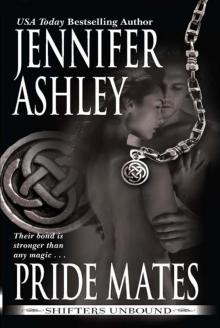 Pride Mates
Pride Mates The Duke's Perfect Wife
The Duke's Perfect Wife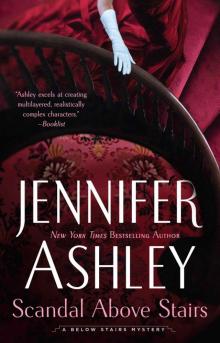 Scandal Above Stairs
Scandal Above Stairs White Tiger
White Tiger Midnight Wolf
Midnight Wolf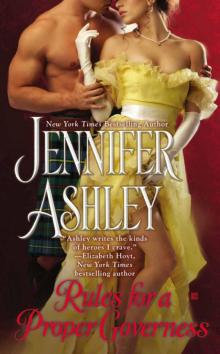 Rules for a Proper Governess
Rules for a Proper Governess Wild Wolf
Wild Wolf Bad Wolf
Bad Wolf Lion Eyes
Lion Eyes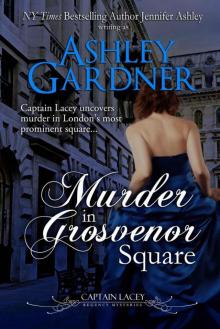 Murder in Grosvenor Square
Murder in Grosvenor Square The Untamed MacKenzie
The Untamed MacKenzie Wicked Deeds of Daniel Mackenzie
Wicked Deeds of Daniel Mackenzie Tiger Striped_Shifters Unbound
Tiger Striped_Shifters Unbound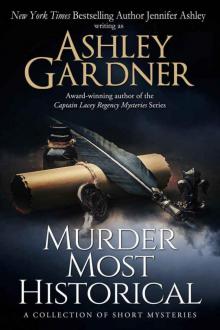 Murder Most Historical
Murder Most Historical Shifter Made
Shifter Made Mate Bond
Mate Bond Tiger Striped
Tiger Striped Bodyguard
Bodyguard Guardian's Mate
Guardian's Mate From Jennifer Ashley, With Love
From Jennifer Ashley, With Love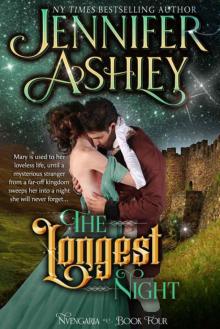 The Longest Night
The Longest Night The Stolen Mackenzie Bride
The Stolen Mackenzie Bride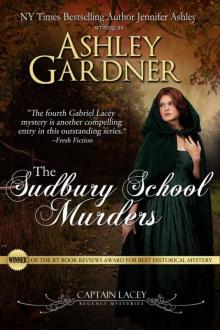 The Sudbury School Murders
The Sudbury School Murders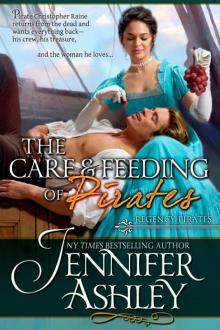 The Care & Feeding of Pirates
The Care & Feeding of Pirates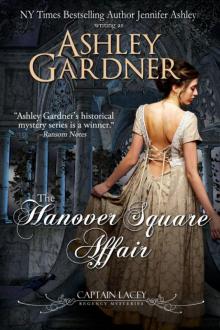 The Hanover Square Affair
The Hanover Square Affair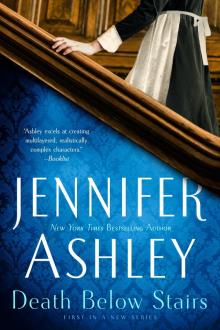 Death Below Stairs
Death Below Stairs Wild Things
Wild Things Wild Cat
Wild Cat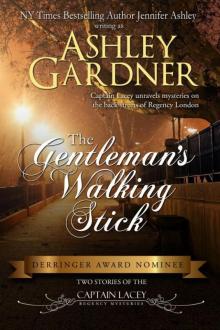 The Gentleman's Walking Stick
The Gentleman's Walking Stick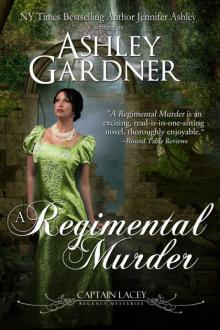 A Regimental Murder
A Regimental Murder Lone Wolf
Lone Wolf Forbidden Taste
Forbidden Taste Red Wolf
Red Wolf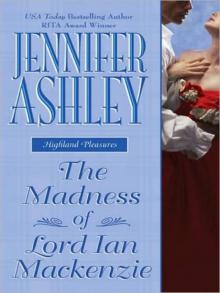 The Madness of Lord Ian Mackenzie
The Madness of Lord Ian Mackenzie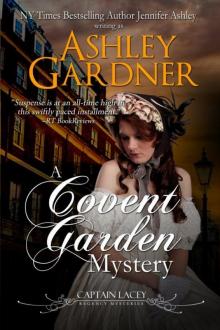 A Covent Garden Mystery
A Covent Garden Mystery The Pirate Next Door
The Pirate Next Door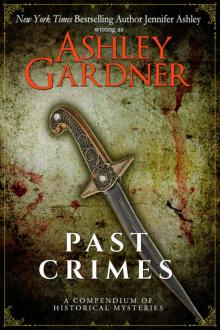 Past Crimes: A Compendium of Historical Mysteries
Past Crimes: A Compendium of Historical Mysteries Highlander Ever After
Highlander Ever After The Alexandria Affair
The Alexandria Affair A Shifter Christmas Carol
A Shifter Christmas Carol The Devilish Lord Will
The Devilish Lord Will Adam
Adam Kyle (Riding Hard Book 6)
Kyle (Riding Hard Book 6)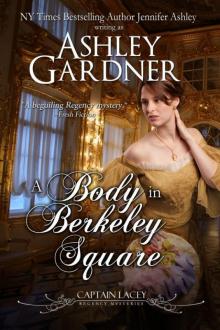 A Body in Berkeley Square
A Body in Berkeley Square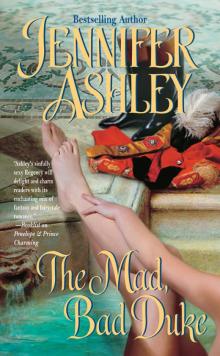 The Mad, Bad Duke
The Mad, Bad Duke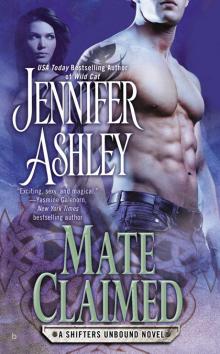 Mate Claimed
Mate Claimed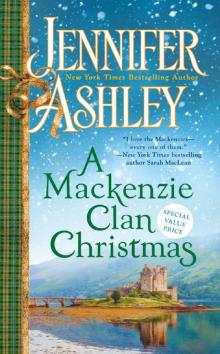 A Mackenzie Clan Christmas
A Mackenzie Clan Christmas The Seduction of Elliot McBride
The Seduction of Elliot McBride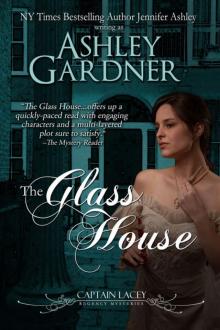 The Glass House
The Glass House Iron Master (Shifters Unbound Book 12)
Iron Master (Shifters Unbound Book 12) A Mackenzie Family Christmas: The Perfect Gift
A Mackenzie Family Christmas: The Perfect Gift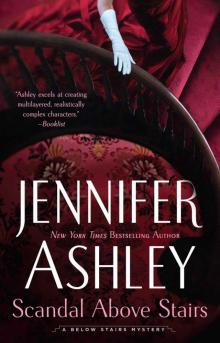 Scandal Above Stairs_A Below Stairs Mystery
Scandal Above Stairs_A Below Stairs Mystery Perfect Mate
Perfect Mate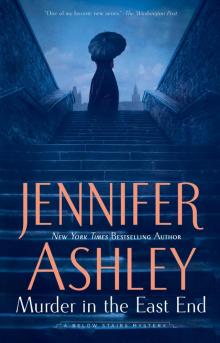 Murder in the East End
Murder in the East End Snowbound in Starlight Bend
Snowbound in Starlight Bend Hard Mated
Hard Mated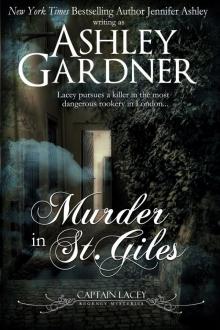 Murder in St. Giles
Murder in St. Giles Alec Mackenzie's Art of Seduction
Alec Mackenzie's Art of Seduction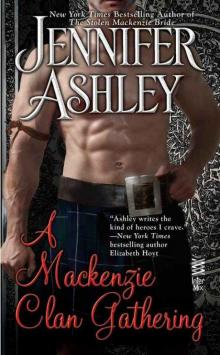 A MacKenzie Clan Gathering
A MacKenzie Clan Gathering Tyler
Tyler Lady Isabella's Scandalous Marriage
Lady Isabella's Scandalous Marriage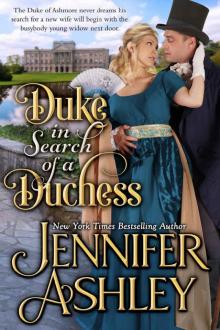 Duke in Search of a Duchess: Sweet Regency Romance
Duke in Search of a Duchess: Sweet Regency Romance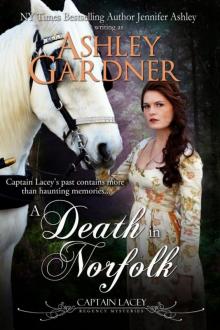 A Death in Norfolk
A Death in Norfolk Give Me One Night (McLaughlin Brothers Book 4)
Give Me One Night (McLaughlin Brothers Book 4) Iron Master
Iron Master The Many Sins of Lord Cameron
The Many Sins of Lord Cameron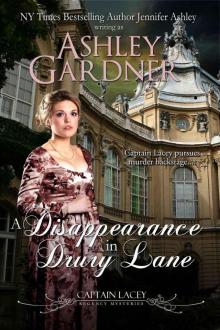 A Disappearance in Drury Lane
A Disappearance in Drury Lane Never Say Never (McLaughlin Brothers Book 3)
Never Say Never (McLaughlin Brothers Book 3) Death in Kew Gardens
Death in Kew Gardens Ross: Riding Hard, Book 5
Ross: Riding Hard, Book 5 Ray: Riding Hard
Ray: Riding Hard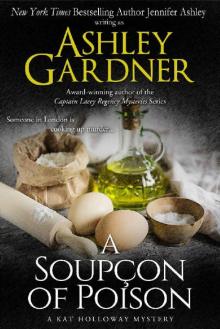 A Soupçon of Poison
A Soupçon of Poison Tiger Magic
Tiger Magic The Pirate Hunter's Lady
The Pirate Hunter's Lady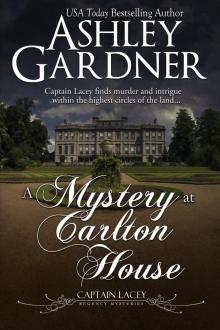 A Mystery at Carlton House
A Mystery at Carlton House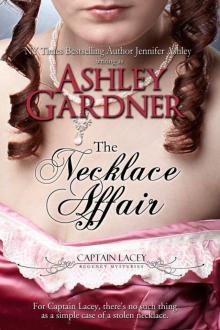 The Necklace Affair
The Necklace Affair Wolf Hunt
Wolf Hunt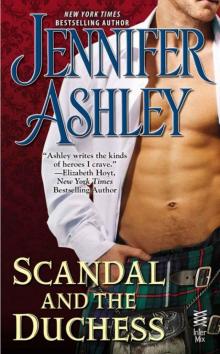 Scandal and the Duchess
Scandal and the Duchess Kyle
Kyle Why Don't You Stay? ... Forever (McLaughlin Brothers Book 2)
Why Don't You Stay? ... Forever (McLaughlin Brothers Book 2)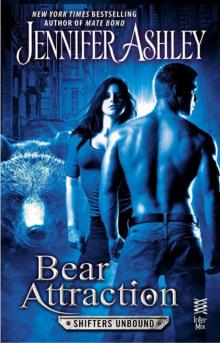 Bear Attraction
Bear Attraction The Gathering
The Gathering A Mackenzie Yuletide
A Mackenzie Yuletide Wild Things (Shifters Unbound #7.75)
Wild Things (Shifters Unbound #7.75) The Redeeming
The Redeeming The Seduction of Elliot McBride hp-5
The Seduction of Elliot McBride hp-5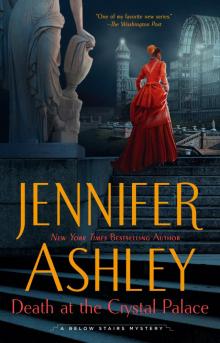 Death at the Crystal Palace
Death at the Crystal Palace Mackenzie Family Christmas: The Perfect Gift (highland pleasures)
Mackenzie Family Christmas: The Perfect Gift (highland pleasures) Forbidden Taste: A Vampire Romance (Immortals)
Forbidden Taste: A Vampire Romance (Immortals)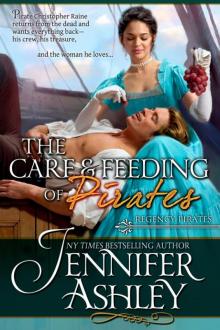 Care and Feeding of Pirates
Care and Feeding of Pirates Shifter Made (shifters unbound)
Shifter Made (shifters unbound) Dark and Dangerous: Six-in-One Hot Paranormal Romances
Dark and Dangerous: Six-in-One Hot Paranormal Romances The Duke’s Perfect Wife hp-4
The Duke’s Perfect Wife hp-4 The Seduction of Elliot McBride (Mackenzies Series)
The Seduction of Elliot McBride (Mackenzies Series)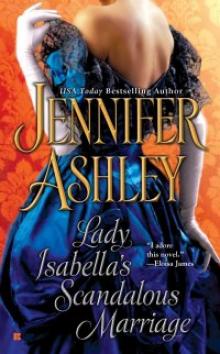 Lady Isabella's Scandalous Marriage hp-2
Lady Isabella's Scandalous Marriage hp-2 BodyGuard (Butterscotch Martini Shots Book 2)
BodyGuard (Butterscotch Martini Shots Book 2) The Wicked Deeds of Daniel Mackenzie hp-6
The Wicked Deeds of Daniel Mackenzie hp-6 Tiger Magic su-5
Tiger Magic su-5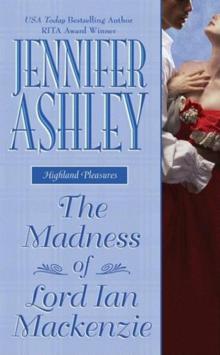 The Madness Of Lord Ian Mackenzie hp-1
The Madness Of Lord Ian Mackenzie hp-1 Alec Mackenzie's Art of Seduction: Mackenzies (Mackenzies Series Book 9)
Alec Mackenzie's Art of Seduction: Mackenzies (Mackenzies Series Book 9) Mackenzie Family Christmas: The Perfect Gift
Mackenzie Family Christmas: The Perfect Gift Bodyguard (Shifters Unbound #2.5)
Bodyguard (Shifters Unbound #2.5) Midnight Wolf (A Shifters Unbound Novel)
Midnight Wolf (A Shifters Unbound Novel) White Tiger (A Shifter's Unbound Novel)
White Tiger (A Shifter's Unbound Novel) Cowboys Last All Night
Cowboys Last All Night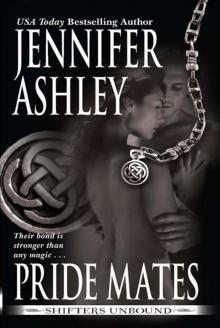 Pride Mates su-1
Pride Mates su-1 Hard Mated (shifters unbound )
Hard Mated (shifters unbound ) Bodyguard (shifters unbound )
Bodyguard (shifters unbound ) Snowbound in Starlight Bend: A Riding Hard Novella
Snowbound in Starlight Bend: A Riding Hard Novella The Untamed Mackenzie (highland pleasures)
The Untamed Mackenzie (highland pleasures) The Untamed Mackenzie (Mackenzies Series)
The Untamed Mackenzie (Mackenzies Series)![Highland Pleasures [6] The Wicked Deeds of Daniel Mackenzie Read online](http://i1.bookreadfree.com/i2/04/07/highland_pleasures_6_the_wicked_deeds_of_daniel_mackenzie_preview.jpg) Highland Pleasures [6] The Wicked Deeds of Daniel Mackenzie
Highland Pleasures [6] The Wicked Deeds of Daniel Mackenzie Lone Wolf (shifters unbound)
Lone Wolf (shifters unbound)![Shifters Unbound [5] Tiger Magic Read online](http://i1.bookreadfree.com/i2/04/11/shifters_unbound_5_tiger_magic_preview.jpg) Shifters Unbound [5] Tiger Magic
Shifters Unbound [5] Tiger Magic Tyler (Riding Hard Book 4)
Tyler (Riding Hard Book 4) Ross
Ross Bad Boys of the Night: Eight Sizzling Paranormal Romances: Paranormal Romance Boxed Set
Bad Boys of the Night: Eight Sizzling Paranormal Romances: Paranormal Romance Boxed Set From Jennifer Ashley, With Love: Three Paranormal Romances from Bestselling Series
From Jennifer Ashley, With Love: Three Paranormal Romances from Bestselling Series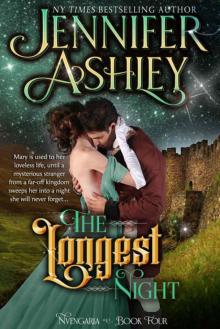 The Longest Night: Fantasy Romance (Nvengaria Book 4)
The Longest Night: Fantasy Romance (Nvengaria Book 4) The Many Sins of Lord Cameron hp-3
The Many Sins of Lord Cameron hp-3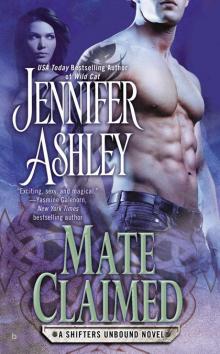 Mate Claimed su-4
Mate Claimed su-4